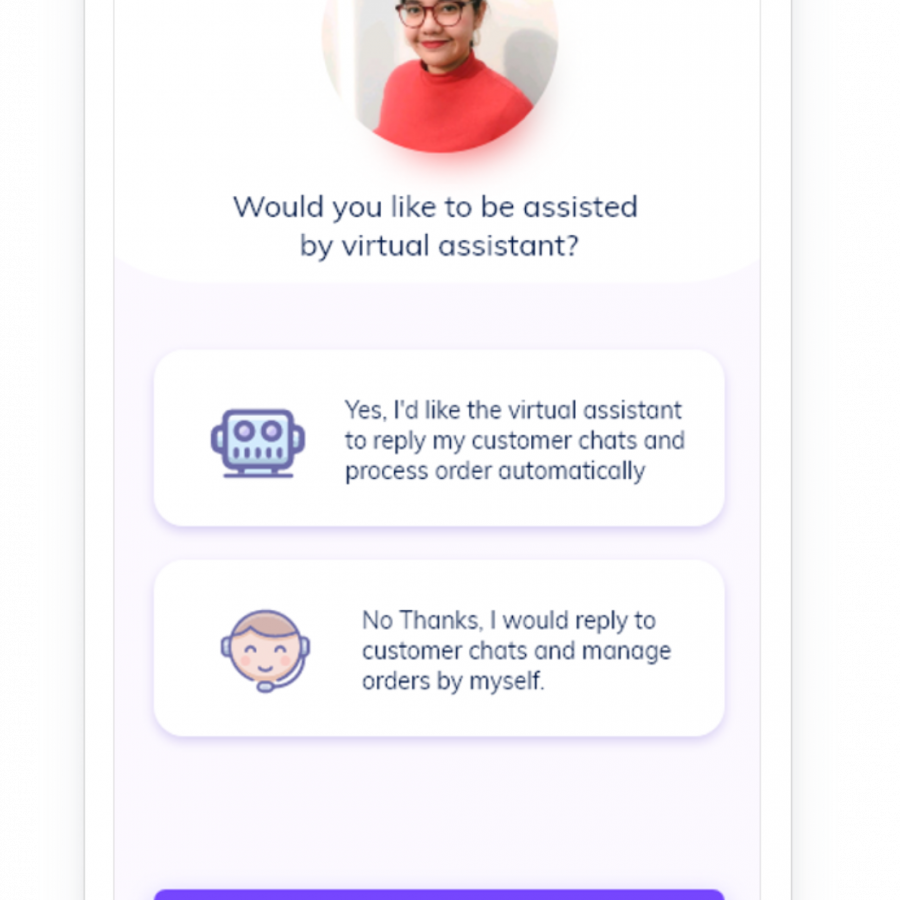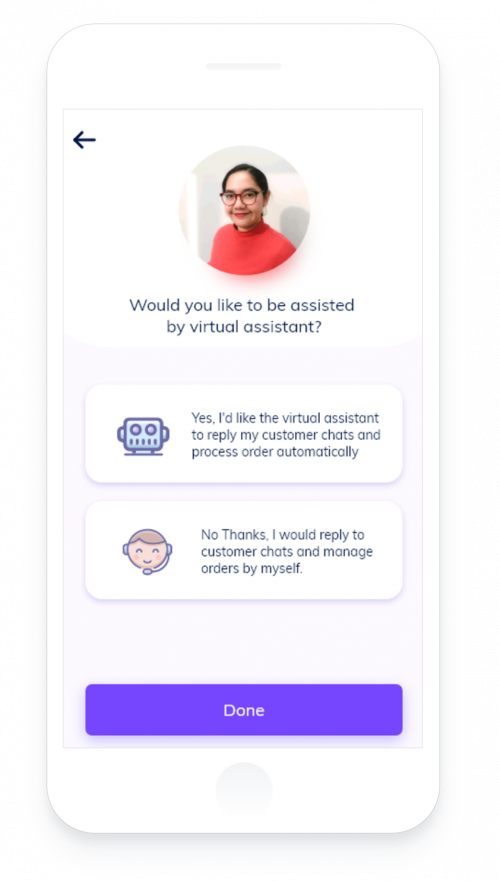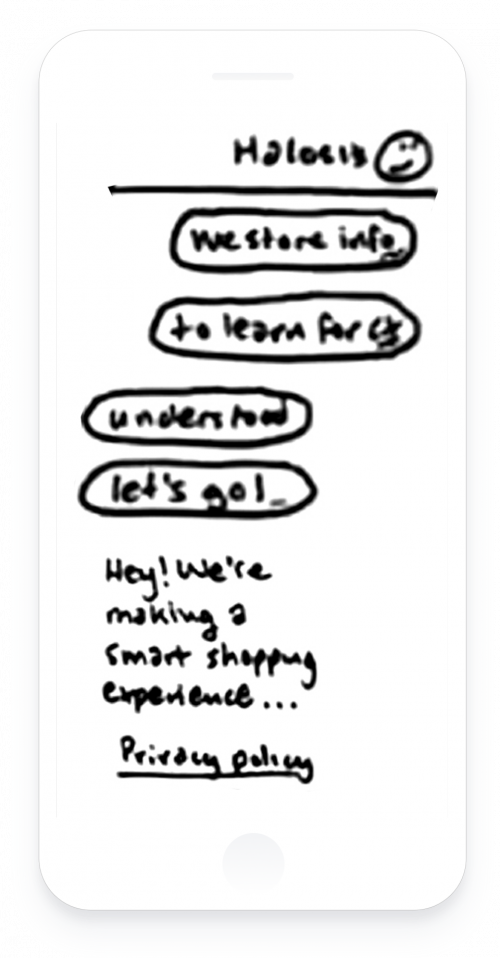How might we...
...show users the value in giving Ai access to data?
Halosis is a commerce platform that integrates chatbots with personalized solutions to help social media sellers convert chat orders into sales. Based in Indonesia, Halosis was founded in 2017 and joined the TTC Design Jam for Notice and Consent in Singapore in mid 2020.

By using artificial intelligence (AI) technology, Halosis uses the Natural Language Processing (NLP) technology to create chatbots that can serve buyers around the clock. The chatbots serve as virtual assistants that can receive, record orders, and arrange goods. Localized for Indonesian e-commerce, it offers virtual assistant services to more than 3,000 of Indonesia’s micro, small, and medium enterprises (MSMEs).

The Halosis team focused on data education and transparency during onboarding with two goals:
How might we...
...show users the value in giving Ai access to data?
Halosis is a B2B2C business that handles customer orders and communication for the seller. Their clients are small business owners, especially womenpreneurs.
For the purpose of this Design Jam, Halosis chose to focus on helping the sellers – those who sell & manage inventory using Halosis – as opposed to the end user (a customer shopping from sellers online).
Halosis created two personas: Novi, a fabric seller specialising in embroidery, who has low literacy levels and little data and tech awareness, and Ade, a ceramic artist, who also has lower literacy levels but is highly informed, and technologically savvy.
"I don’t know why I have to enter so many details on Halosis, I don’t mind giving my details as long as it helps me sell” (Novi)
"I think data privacy is important and I’m interested to know about it and how Halosis uses my data.” (Ade)
The team decided to focus on Ade’s needs – that of a data literate person who is keen to know about Halosis’s data usage. The aim was to improve his onboarding experience, to make him feel safe and in control; while communicating that AI is using his data to become an intelligent virtual assistant to offer him and his customers enhanced support.
Design improvements around privacy and consent involved asking his permission to use some specific data points, explaining the privacy policy in a simple, (non technical) language and prompting tailored suggestions on how he can automate processing orders and managing payments. Ade would be given the option to choose whether he wanted an AI driven virtual assistance or manual management. This gives him control over his use of AI and in turn, on sharing his data.
Halosis defined the following ‘How might we’ questions to address transparency of data usage: How might we educate the sellers about the use of AI?
By doing so, the challenges relate to having a transparent and clear way of seeking consent around data and simplifying the processes and offering a non AI reliant option.
Halosis collects personal and payment data. Including things such as:

Privacy explained as a part of onboarding
The privacy policy is an integral step of onboarding. It’s not neglected or placed in a small font size at the bottom, but brought to the front in the initial stages of set up. Before registering an account the pop up modal informs you about the privacy policy, which then leads to collecting data for set up.
Simple Language
The new prototype highlights the privacy policy as a mechanism for informed consent. It uses a simple language with progressive disclosure so as to not alienate users with low literacy levels but empower them about their data and its use.
Explain AI by Showing the Choices
The option to choose an AI driven virtual assistant makes it easier for sellers to understand the value of a automated and personalized approach to features and controls. Opting out of an Ai assistant is just as easy and when sellers do choose to opt out they know which process becomes manually operated.
Privacy Policy
We explain the privacy policy in simple language, so that our customer could easily understand the use of the data they provide.
Artificial Intelligence Explainability
To explain the complex working principle of AI, we create a quiz and clarify its benefits in the answer.
